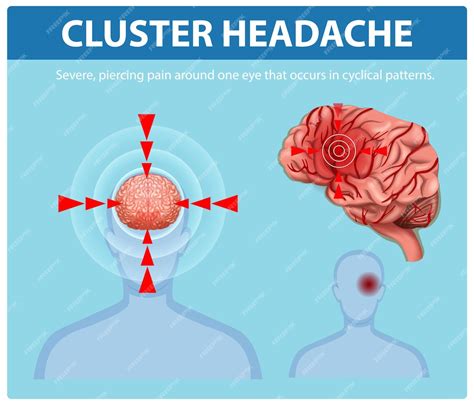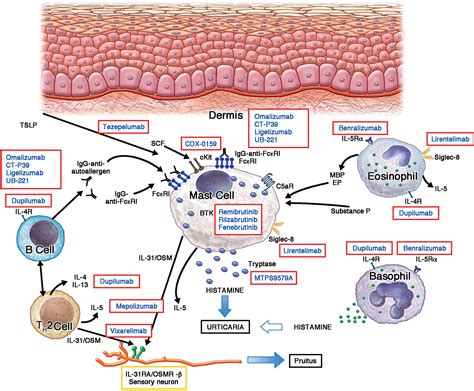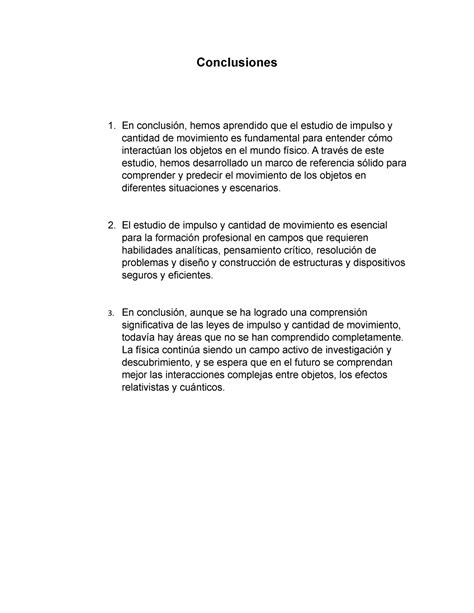Intro
Discover 5 ways cluster headaches medication can provide relief, including prescription treatments, preventative measures, and alternative therapies, to help manage debilitating cluster headache symptoms and improve quality of life.
Cluster headaches are a type of headache disorder characterized by severe, debilitating headaches that occur in cyclical patterns or clusters. These headaches are often described as the most painful type of headache, even more so than migraines. The pain is typically one-sided, centered around the eye, and can be accompanied by other symptoms such as nasal congestion, eye watering, and sensitivity to light and sound. Given their severity, finding effective cluster headaches medication is crucial for managing symptoms and improving quality of life.
The importance of understanding and treating cluster headaches cannot be overstated. The condition significantly impacts daily activities, sleep, and overall well-being. While the exact cause of cluster headaches remains unknown, various treatments and medications have been developed to alleviate symptoms. The approach to treatment often involves a combination of acute and preventive therapies, tailored to the individual's needs and the severity of their condition.
Effective management of cluster headaches requires a comprehensive approach, including lifestyle modifications, avoidance of triggers, and the use of specific medications. Medications for cluster headaches can be broadly categorized into two main types: abortive treatments, which are used to stop a headache once it has started, and preventive treatments, which are taken regularly to reduce the frequency and severity of headaches. Understanding the different options available is key to developing an effective treatment plan.
Understanding Cluster Headaches

Cluster headaches are relatively rare, affecting less than 1% of the general population, but they have a significant impact on those who suffer from them. The condition typically affects men more than women, and the age of onset is usually between 20 and 40 years old. The cyclical nature of cluster headaches means that periods of frequent headaches (cluster periods) are interspersed with periods of remission, where no headaches occur. This unpredictability makes it challenging to manage the condition and emphasizes the need for a flexible and adaptable treatment plan.
Abortive Treatments for Cluster Headaches

Abortive treatments are designed to relieve the symptoms of a cluster headache once it has started. These treatments aim to reduce the severity and duration of the headache. Common abortive treatments include:
- Oxygen Therapy: Inhaling 100% oxygen through a mask at the onset of a headache can significantly reduce its duration and severity. This method is particularly effective when used early in the headache.
- Triptans: These are a class of drugs that constrict blood vessels and block pain pathways in the brain. They can be administered orally, intranasally, or via injection.
- Lidocaine: A local anesthetic that can be administered intranasally to provide rapid pain relief.
Preventive Medications
Preventive medications are taken regularly during a cluster period to reduce the frequency and severity of headaches. These medications can take several days to become effective, so they are often started at the beginning of a cluster period. Examples include: - **Verapamil:** A calcium channel blocker that is commonly used as a first-line preventive treatment for cluster headaches. - **Corticosteroids:** These can be used to rapidly reduce the frequency of headaches at the start of a cluster period. - **Lithium:** Often used for bipolar disorder, lithium can also be effective in reducing the frequency of cluster headaches.Lifestyle Modifications and Alternative Therapies

In addition to medication, lifestyle modifications and alternative therapies can play a crucial role in managing cluster headaches. These include:
- Maintaining a Regular Sleep Schedule: Irregular sleep patterns can trigger cluster headaches.
- Avoiding Triggers: Identifying and avoiding personal triggers, such as alcohol consumption during a cluster period, can help reduce headache frequency.
- Stress Management: Techniques such as meditation, yoga, and biofeedback can help manage stress, a potential trigger for headaches.
Nutritional and Herbal Supplements
Some nutritional and herbal supplements have been suggested to help manage cluster headaches, though evidence is often anecdotal or based on small-scale studies. These include magnesium, vitamin B2 (riboflavin), and butterbur. However, it's essential to consult with a healthcare provider before adding any supplements to your regimen, as they can interact with other medications or have side effects.Emerging Treatments and Technologies

Research into cluster headaches is ongoing, with several emerging treatments and technologies showing promise. These include:
- Neuromodulation Techniques: Such as transcutaneous vagus nerve stimulation and transcranial magnetic stimulation, which can alter brain activity patterns associated with headaches.
- OnabotulinumtoxinA (Botox) Injections: While primarily known for cosmetic use, Botox has been approved for the treatment of chronic migraines and is being explored for its potential in treating cluster headaches.
Future Directions in Cluster Headache Management
The future of cluster headache management looks promising, with advances in understanding the underlying biology of the condition, development of new medications, and refinement of existing treatments. Personalized medicine, where treatment is tailored to the individual's genetic, environmental, and lifestyle factors, may also play a significant role in improving outcomes for those with cluster headaches.Conclusion and Next Steps

In conclusion, managing cluster headaches requires a multifaceted approach that includes abortive and preventive medications, lifestyle modifications, and potentially alternative therapies. As research continues to uncover the complexities of this condition, new and innovative treatments are being developed. For individuals suffering from cluster headaches, it's essential to work closely with healthcare providers to develop a personalized treatment plan that addresses their unique needs and circumstances.
If you or someone you know is struggling with cluster headaches, don't hesitate to reach out to a healthcare professional for guidance and support. Sharing personal experiences and engaging in conversations about cluster headaches can also help raise awareness and foster a community of support. Consider commenting below with your thoughts on cluster headache management or sharing this article with others who might find it helpful.
What are the most common triggers for cluster headaches?
+Common triggers include alcohol consumption during a cluster period, strong smells, and changes in sleep patterns. However, triggers can be highly individualized, and what triggers headaches in one person may not affect another.
Can cluster headaches be cured?
+Currently, there is no cure for cluster headaches, but various treatments can help manage the condition, reduce the frequency and severity of headaches, and improve quality of life.
How are cluster headaches diagnosed?
+Diagnosis is typically based on a detailed medical history and description of symptoms. There is no specific test for cluster headaches, but other conditions that might cause similar symptoms may be ruled out through imaging studies or other diagnostic tests.
